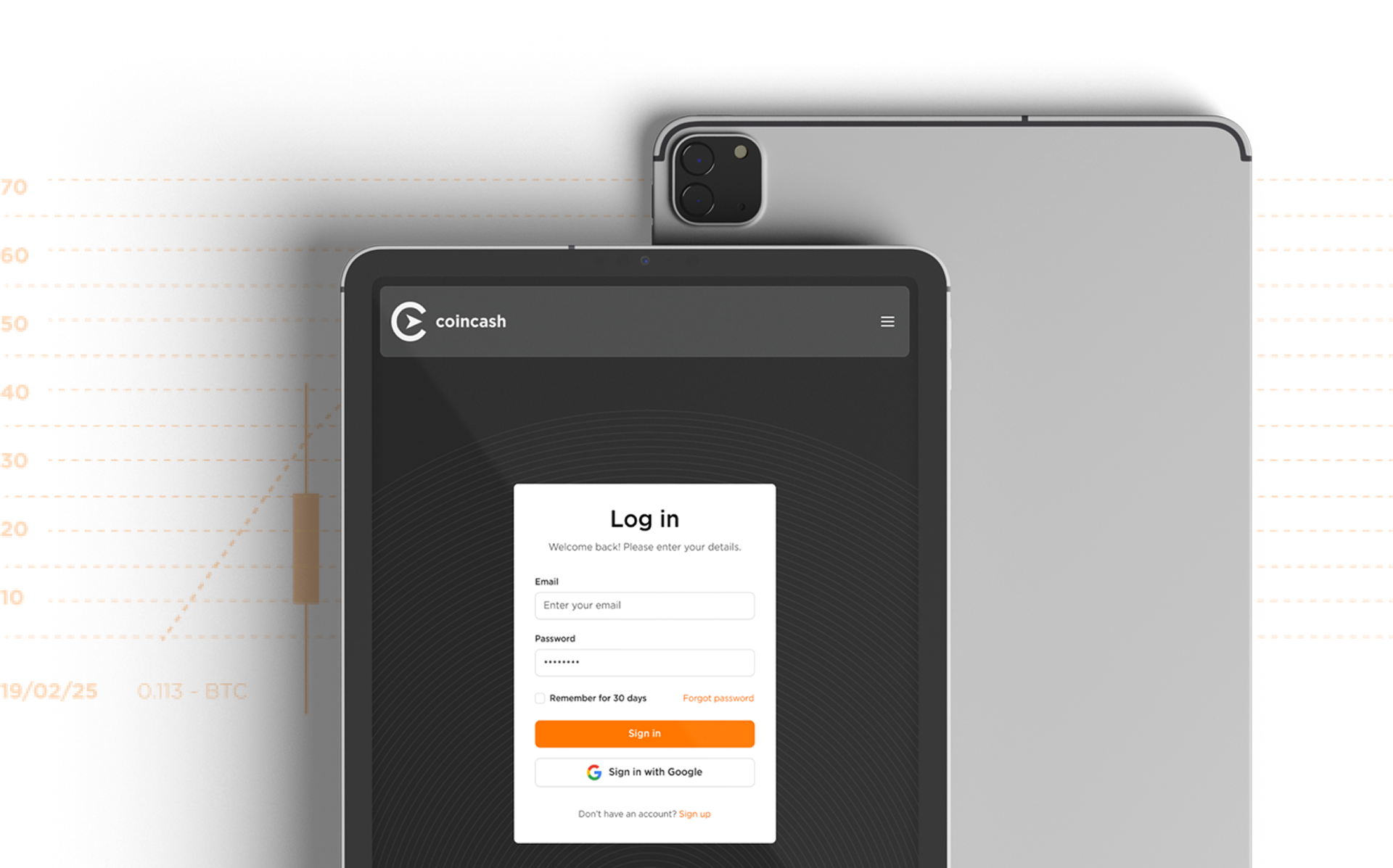We asked how the latest decision by the US Securities and Exchange Commission will change the crypto market. Bitcoin ETFs may be on the way
In January, the US Securities and Exchange Commission (SEC) approved exchange-traded funds (ETFs) that allow bitcoin investments through asset managers. The decision could be revolutionary for the cryptocurrency industry, which has been trying to bring similar products to market for more than a decade.
We asked Attila Mogyorósi, co-founder of CoinCash, about the news that will shape the future of the crypto market.
Since 2013, several asset managers have filed applications to create bitcoin ETFs but the SEC has rejected them due to the risk of market manipulation.
In August, however, a huge turnaround came as the court ruled that the SEC had erred in rejecting Grayscale Investments' application for a bitcoin ETF. The SEC was forced to reconsider its position.
According to Attila Mogyorósi, co-founder of CoinCash, the largest cryptocurrency exchange operator in the domestic market, the news is worth examining not only in isolation, but also in the context of several years.
"The adoption of the ETF is the result of a more than 10-year process, since the Winklevoss brothers first applied for the creation of the Winklevoss Bitcoin Trust in July 2013. Since then, countless attempts have been rejected, many have been calling bitcoin and cryptocurrencies "death news", calling it a balloon, a worthless investment. And yet, in an uncertain regulatory environment, amidst mostly sceptical or negative media coverage, bitcoin has proven resilient."
said Attila Mogyorósi.
What does this mean in practice?
ETFs are listed on Nasdaq, NYSE and CBOE. Their assets are composed of physical bitcoins purchased from crypto exchanges and stored through custodians such as Coinbase Global. The products follow a bitcoin benchmark. Some follow an index provided by CF Benchmarks, a subsidiary of the crypto exchange Kraken, which aggregates trading data from multiple bitcoin-USD markets operated by major cryptocurrency exchanges.
Particularly interesting is the fact that in the world of exchange trading, it is unusual for an asset to be finite for technological reasons - after mining 21 million bitcoins, no more will be created. Of course, this is still a long way off, but it may still be a headache for investment firms to buy large quantities of bitcoin, as they are not expected to base their investment products on their own mining.
"The first two days of trading saw net inflows of $800 million, with high interest. A correction is expected in the short term, in my opinion, given the heightened interest in the ETF's adoption in recent months and the 2.5 times increase in bitcoin's price last year, so it is expected that investors will want to realise these profits ("sell the news event")."
said the co-founder of CoinCash.
The main objective is to minimise risk
Of course, the SEC's concerns about manipulation may still be valid, which is why Nasdaq and the CBOE have set up a market surveillance mechanism with the largest US cryptocurrency exchange, Coinbase.
The bitcoin ETF allows investors to gain exposure to the bitcoin exchange rate without the complications and risks associated with owning cryptocurrency directly. These types of risks include even the creation of crypto wallets and accounts on crypto exchanges, some of which admittedly lack cyber security preparedness and can leave their clients vulnerable to hacking.
The industry is not without its scandals, such as the collapse of the FTX crypto exchange or the recent guilty plea by Binance, the world's largest crypto exchange, to violating US anti-money laundering laws and the resignation of its iconic leader Changpeng Zhao. The reverses of all these major industry players have dragged the market and continue to make investors cautious.
By contrast, ETFs are listed on highly regulated exchanges and are therefore available through retail investors' existing brokerage accounts, which are also closely monitored. The ETF structure also increases the availability of bitcoin to institutional investors, some of whom may not invest directly in alternative assets.
The SEC approved a bitcoin futures ETF in 2021, which will track agreements to buy or sell bitcoin at a prearranged price. But these products do not track price movements closely and the cost of extending futures contracts can eat up returns.
Should we buy bitcoin now or are we missing the point?
There's no arguing that when news about bitcoin breaks, the public conversation immediately turns to the price. The co-founder of CoinCash says the exchange rate is likely to be under pressure in the short term, but the ETF's launch could provide a good overall entry point for those who believe in bitcoin.
"In the long term, we can rightly expect a huge increase. It is estimated that in the first year alone, there will be a net inflow of $50-100 billion into the funds. This could bring the stock price close to the $100,000 dream level, but some believe it could reach as high as $200,000 in the next few years."
said Attila Mogyorósi.
Attila Mogyorósi also pointed out that the issuers of ETFs (BlackRock, Fidelity, etc.) are the world's largest fund managers, who have now set their entire marketing machinery in motion to attract more conservative investors to invest in cryptocurrency.
Of course, it is not "only" the marketing machine that is responsible for building confidence in the crypto world, but also regulation.
In Europe, for example, a comprehensive and comprehensive regulatory package, modelled on MiFID and called MiCA (Markets in Crypto Assets), was adopted last year. This directive regulates and provides a framework for the trading, storage and issuance of cryptocurrencies and offers full investor protection for those who buy digital currencies from regulated institutions in the future.
This is expected to have a major market clearing effect and could also boost interest in the asset class among more conservative investors in Europe.
"Furthermore, I think it is very likely that under the aegis of comprehensive regulation, traditional financial players will also enter this market. One such example is that Raiffeisen's customers at its Vienna headquarters can now buy euro bitcoins directly through their regular bank."
said Attila Mogyorósi.
Small step for man, big step for the crypto world?
European ETFs have been available to professional investors since August last year (Jacobi Bitcoin ETF - Euronext Amsterdam) but have attracted significantly less interest than the launch of their big US siblings. To date, a total of only 42 BTC have been accumulated in it, which is less than $2 million.
"So as I said before, it matters a lot who says bitcoin is a good investment. And if it's the world's largest fund manager, then long-term bitcoin investors have every right to expect another price spike in the next year or two."
said the founder of CoinCash.
Attila Mogyorósi also pointed out that the bitcoin halving and the expected interest rate cut cycle is imminent. These are all important macro factors that will drive bitcoin's fortunes in the near future.
The adoption of the ETF is undoubtedly an important historic moment. Not only does it legitimize bitcoin, but it could open the way for new ETFs, such as Ethereum-based ETFs, investment opportunities and new applications, such as tokenization of traditional assets on a blockchain basis.
Click here if you would like to buy Bitcoin.
Click on the stars to rate the article!



